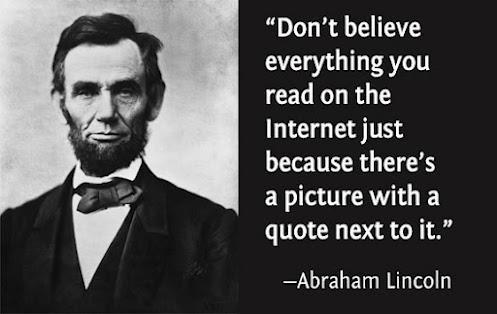noun
-an element of a culture or system of behavior that may be considered to be passed from one individual to another by nongenetic means, especially imitation.
-a humorous image, video, piece of text, etc., that is copied (often with slight variations) and spread rapidly by Internet users.
If you still don't know what the heck I am talking about...I love you, but....Here's an example of a meme -
Recently in class, the issue of memes has surfaced. In searching for images or cultural visuals for class, I am happening on more and more memes or gifs on the internet. I landed on this little dandy the other day while looking for a visual of Benedict Arnold.
This is wrong.
Arnold could never have said this. The Constitution did not exist when Arnold was still one of "we the people" or a Patriot. The quote actually belongs to Abraham Lincoln in his notes on a speech given in September 1859 before he was elected President. He said,
But we must, by a national policy, prevent the spread of slavery into new territories, or free states, because the constitution does not forbid us, and the general welfare does demand such prevention — We must prevent the revival of the African slave trade, because the constitution does not forbid us, and the general welfare does require the prevention — We must prevent these things being done, by either congresses or courts — The people — the people — are the rightful masters of both Congresses, and courts — not to overthrow the Constitution, but to overthrow the men who pervert it —"1
I'm so curious as to the motivation for creating this inaccurate meme, attributing to Arnold. I have my theories. My class came up with their own.
Now do I expect every Facebook user to check the authenticity of a meme? Practically speaking, no. But I'm a historian and I feel like it's my job to start these conversations. We need to learn to question print media in a whole new way now. Our 21st century society and political climate DEMAND that.
Or we could just harken back to the wise words of Lincoln:
Yeah. This is why I am bringing it up more in class. When it's important, check the source.
JJ
1 Library of Congress, Abraham Lincoln Papers, https://www.loc.gov/teachers/classroommaterials/connections/abraham-lincoln-papers/history3.html








